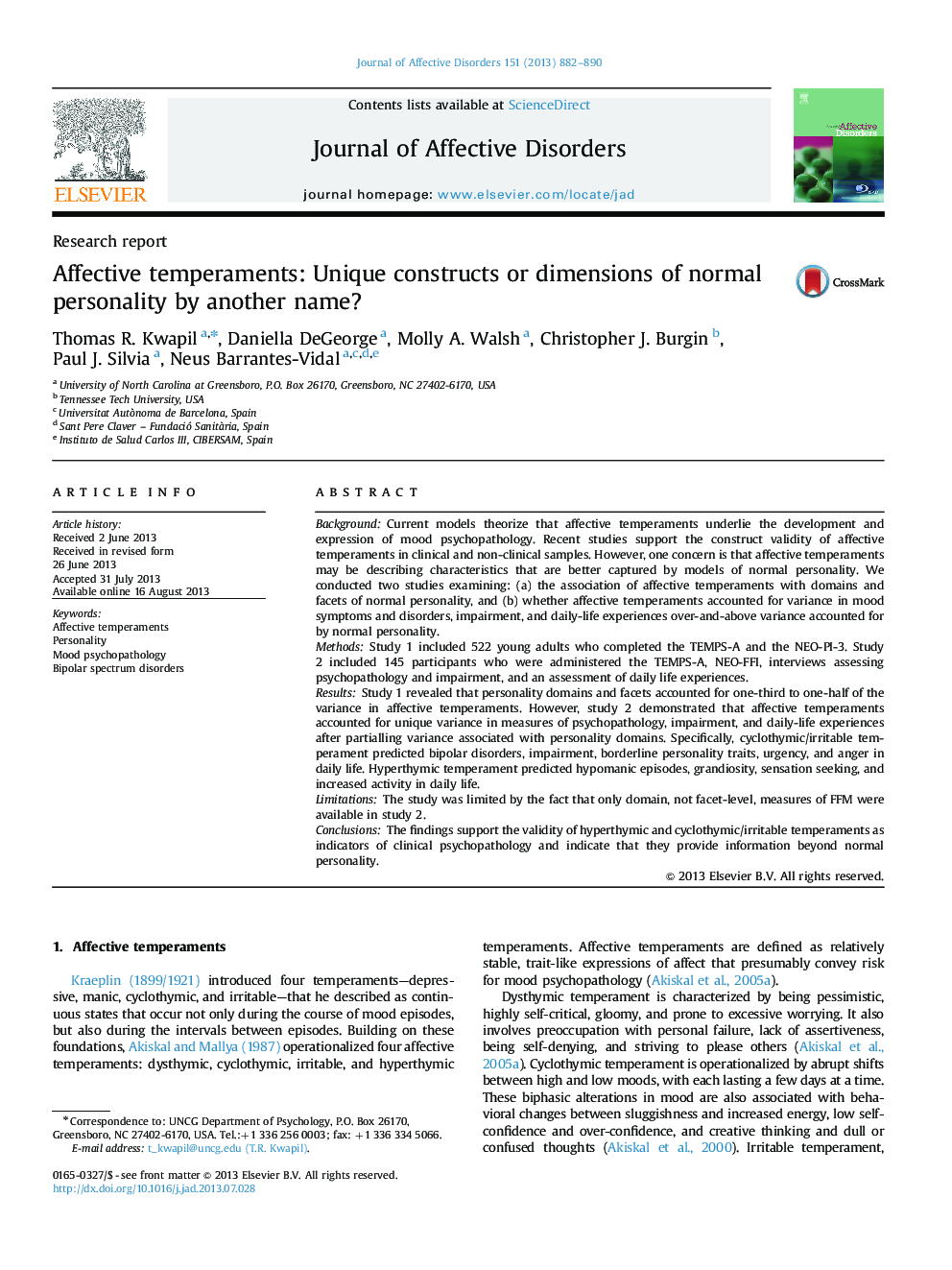| Article ID | Journal | Published Year | Pages | File Type |
|---|---|---|---|---|
| 6233444 | Journal of Affective Disorders | 2013 | 9 Pages |
BackgroundCurrent models theorize that affective temperaments underlie the development and expression of mood psychopathology. Recent studies support the construct validity of affective temperaments in clinical and non-clinical samples. However, one concern is that affective temperaments may be describing characteristics that are better captured by models of normal personality. We conducted two studies examining: (a) the association of affective temperaments with domains and facets of normal personality, and (b) whether affective temperaments accounted for variance in mood symptoms and disorders, impairment, and daily-life experiences over-and-above variance accounted for by normal personality.MethodsStudy 1 included 522 young adults who completed the TEMPS-A and the NEO-PI-3. Study 2 included 145 participants who were administered the TEMPS-A, NEO-FFI, interviews assessing psychopathology and impairment, and an assessment of daily life experiences.ResultsStudy 1 revealed that personality domains and facets accounted for one-third to one-half of the variance in affective temperaments. However, study 2 demonstrated that affective temperaments accounted for unique variance in measures of psychopathology, impairment, and daily-life experiences after partialling variance associated with personality domains. Specifically, cyclothymic/irritable temperament predicted bipolar disorders, impairment, borderline personality traits, urgency, and anger in daily life. Hyperthymic temperament predicted hypomanic episodes, grandiosity, sensation seeking, and increased activity in daily life.LimitationsThe study was limited by the fact that only domain, not facet-level, measures of FFM were available in study 2.ConclusionsThe findings support the validity of hyperthymic and cyclothymic/irritable temperaments as indicators of clinical psychopathology and indicate that they provide information beyond normal personality.
